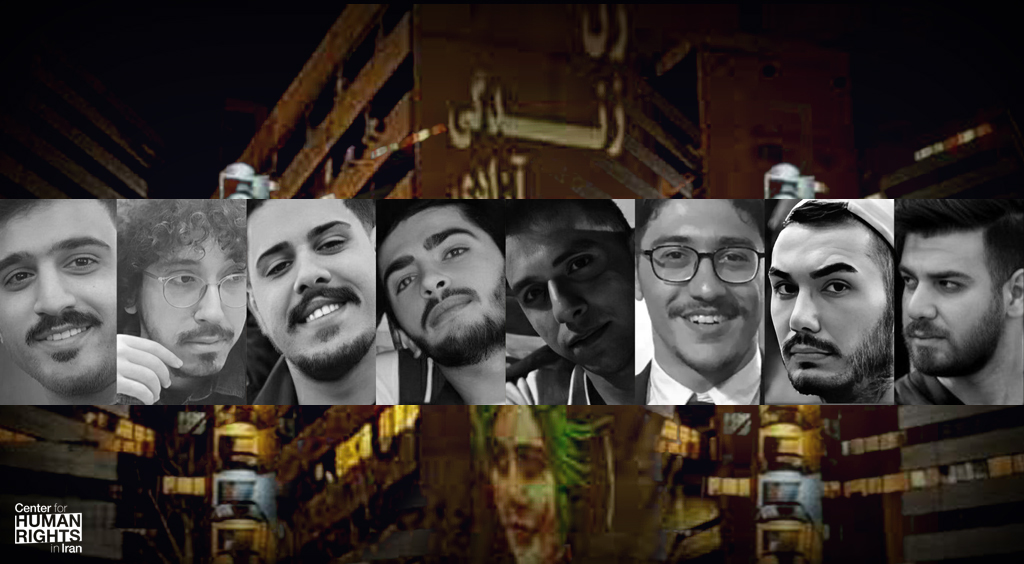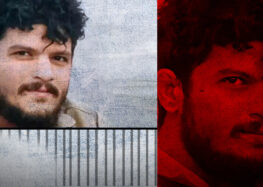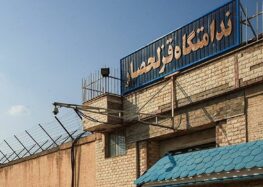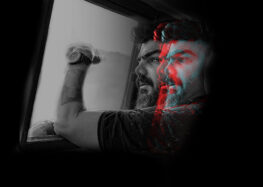Grave Concerns as Young, Tortured Men Face Unsubstantiated Death Penalty Case in Iran

IRGC’s Refusal to Hand Over Alleged Video “Evidence” Raises Concerns of Frame-Up
January 11, 2024 – There are serious concerns for a group of young men detained in Iran, some facing the death penalty despite a lack of concrete evidence, who are in extremely poor condition after enduring torture and confinement in a prison where they have witnessed a surge in executions.
“All of these detainees are in severely poor mental and physical condition, as they have been subjected to torture, inhumane prison conditions and intense psychological pressure,” a source familiar with the case told the Center for Human Rights in Iran (CHRI).
“Imagine witnessing several prisoners taken to the gallows daily in Qezel Hesar Prison,” the source, speaking on the condition of anonymity for security reasons, continued. “They grapple with severe anxiety and stress about the potential imposition of a death sentence.”
Eight men, all under 30, are currently facing charges in the Tehran Criminal and Security Court related to the killing of Arman Aliverdi, an agent of the paramilitary Basij force, outside an apartment complex in Tehran’s Ekbatan Township. The defendants are Milad Arman, Mohammad Mehdi Hosseini, Mehdi Imani, Alireza Kafaei, Amir Mohammad Khosheghbal, Alireza Barmarz Pournak, Hossein Nemati, and Navid Najjaran.
All except one were apprehended between November and December 2022 amid anti-state protests that erupted across Iran in September 2022 following the death in state custody of Mahsa Jina Amini, 22, just three days after her arrest for an alleged inappropriate hijab in Tehran.
While the case against them has included a purportedly incriminating video, state security forces’ have refused to release it to the criminal court. Yet three of the eight defendants are concurrently being tried on charges that could carry the death penalty in the criminal court system as well as in Iran’s opaque Islamic Revolutionary Court system, underscoring the urgent need for the transparent examination of any alleged evidence.
In addition, the “confessions” elicited from some of the men were extracted under torture, a routine practice in the Islamic Republic.
The lack of adherence to international standards of due process is evident throughout Iran’s entire judicial system, including in the criminal court system. The revolutionary court trial, presided over by Judge Abolqasem Salavati, is particularly concerning. Salavati is notorious for convicting political prisoners based on unfounded claims by state security agents. The presence of death penalty-carrying charges in this case raises significant alarm.
Milad Arman, Mohammad Mehdi Hosseini, and Mehdi Imani face “waging war” charges in the Tehran Criminal and Security Court, which carries the death penalty. In Iran’s revolutionary court, these men are accused of “waging war through the use of a cold weapon” and “acting against national security.”
Meanwhile, Alireza Kafaei, Amir Mohammad Khosheghbal, Alireza Barmarz Pournak, and Hossein Nemati are charged with “participation in intentional murder” and “disturbing peace and public order” in the criminal court, which could result in a 30-year imprisonment.
The status of the eighth defendant, Navid Najjaran, recently arrested in connection with this case in Ahvaz, southwest Iran, remains undisclosed.
Subjected to Torture, Coerced into False “Confessions”
The source with in-depth knowledge of the case revealed that all detainees have endured both physical and psychological torture, compelling some to provide false “confessions.”
Arman, who is also facing charges in the Islamic Revolutionary Court system, and Kaafei were detained for a minimum of two months in the police investigations office.
Arman, held in solitary confinement for several weeks, was subjected to severe torture. On November 3, 2022, he was forced in front of a camera, alongside four other unnamed detainees for security reasons, to make coerced false “confessions.”
Kafaei, according to information acquired by CHRI, also experienced torture in the police detention center, exacerbated by his pre-existing nervous and mental health conditions.
The deteriorating condition of the detainees underscores the urgency for their prompt release.
Khosheghabal, a 25-year-old defendant in the Ekbatan case, reportedly attempted suicide due to the torture he endured at the Air Force Intelligence Unit detention center and the police investigations office, highlighting the gravity of their suffering.
Failure to Secure Death Sentence in Criminal Court Prompts Transfer to Opaque “Islamic Revolutionary Court”
The eight men, all under 30 and currently detained in Qezel Hesar Prison near Tehran, face accusations of murdering Arman Aliverdi, a Basij force agent, during street protests in Tehran in October 2022. Despite the Revolutionary Guard Corps (IRGC) claiming to possess incriminating video footage, they have withheld it from the criminal court.
Prosecuting a single case in two separate court systems is uncommon in Iran, and the refusal to provide video evidence to the criminal court raises suspicions of foul play. Given the alleged torture of the detainees, concerns persist that the men are being framed. The case’s transfer to the Islamic Revolutionary Court, designed to safeguard the state, adds to these suspicions.
The IRGC claims to possess video footage proving the defendants’ guilt, asserting that they must be executed. However, the intelligence arm of the IRGC deemed the footage classified, and refused to submit it to the criminal court.
The investigation took a different trajectory when no videos were presented to the criminal court. The court authorities warned that without the videos, the claims about the defendants’ presence at the scene wouldn’t be considered in the final verdict.
“IRGC Intelligence officials claim to have videos that show the defendants dealt the fatal blows to Arman Aliverdi, proving that they are murderers and must be executed,” the source told CHRI.
“The judge in the criminal case has asked all military and security organizations to provide the videos to the court, but the IRGC intelligence organization officials claim the videos are classified and can only be handed over to the revolutionary court,” added the source.
The source said, “The investigation into the Ekbatan case took a different turn when no videos were submitted to the criminal court. The court authorities warned all military and security organizations that if the videos in question are not handed over, the claims about the videos [regarding the presence of the defendants at the scene] would not be entertained by the court in the final verdict.”
No Verdicts Issued
Reports from eyewitnesses and informed sources indicate that at least 50 young people in the township were arrested in the first two weeks. Most were released without charge due to lack of evidence.
On January 8, 2024, a court session was held at Branch 13 of the Criminal Court in Tehran for Arman, Kafaei, Khosheghbal, Pournak, Hosseini, Nemati, Imani and Najjaran.
An informed source told CHRI, “The case against these individuals is divided into two parts. One part of the case has been referred to Branch 15 of the Revolutionary Court in Tehran headed by Judge Abolqasem Salavati, and the other part to Branch 13 of Criminal Court. So far, no verdict has been issued.
On August 1, 2023, the defendants were suddenly moved from Rajaee-Shahr Shahr Prison to Qazel Hesar Prison, both in Karaj, Alborz province, without prior notice, along with hundreds of other prisoners.
Arman was arrested by the security forces on November 7, 2022, Kafaei and Pournak on the November 9, 2022, Hosseini on December 6, 2022, Khosheghbal on December 7, 2022, Nemati on December 14, 2022, Imani on December 15, 2022, and Najjaran sometime later at an unknown date.
Read this article in Persian
This report was made possible from donations by readers like you. Help us continue our mission by making a tax-deductible donation.






